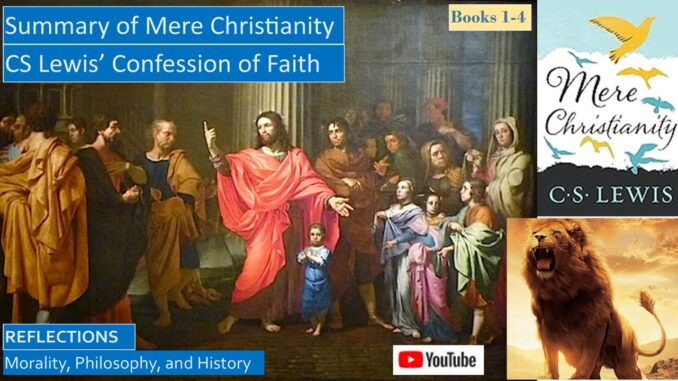
What encouragements did CS Lewis offer the Londoners who tuned into his broadcasts on Christianity during the bombing raids of World War II?
How did Mere Christianity prepare the way for the decrees of Vatican II? How were the decrees of Vatican II influenced by their wartime experiences?
Was CS Lewis a closet Catholic?
Why is CS Lewis the rare theologian whose works are enthusiastically read by Protestant, Catholic, and Orthodox believers?
YouTube video for this reflection: https://youtu.be/6-Hc4X0NN8k
CS LEWIS BACKGROUND
Born in Dublin in 1898 before the partition of Ireland, CS Lewis was baptized into the Anglican Church, but became disenchanted with Christianity because of his experiences at school and serving in the trenches of World War I. These experiences influenced his turn to atheism, but he regained his Christian faith in the interwar years. His Mere Christianity refutes the misconceptions that kept him from the faith during these years.[1]
WAS CS LEWIS INSPIRED BY PURITAN RICHARD BAXTER?
Many scholars speculate on whether CS Lewis was inspired by the writings of Richard Baxter, a Puritan and prolific author who first coined the phrase “Mere Christianity.” Baxter lived during the intense religious struggle in the late 1600’s, a century after Henry VIII split from the Catholic Church to form the Anglican Church. Baxter was appointed to the royal chaplaincy, but he left his post after the passage of the Act of Uniformity in 1662, which required that all pastors exclusively use the Book of Common Prayer and be ordained as Anglican ministers. Baxter was reluctant to adopt a denomination, proclaiming that “I am a Christian, a MEER CHRISTIAN, of no other religion,” and “I am against all sects and dividing parties.” He did not want to identify either with Catholics, Anglicans, or Presbyterians.
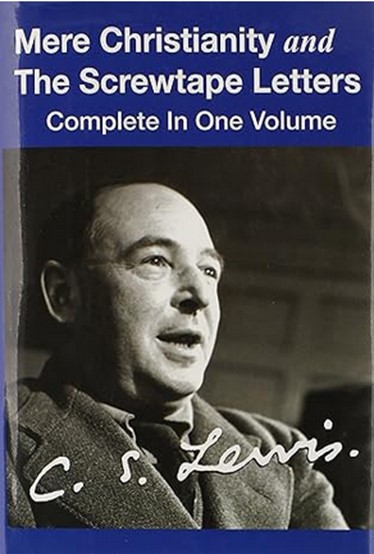

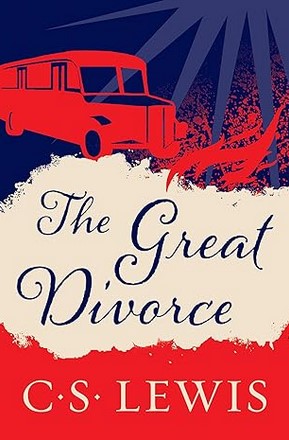
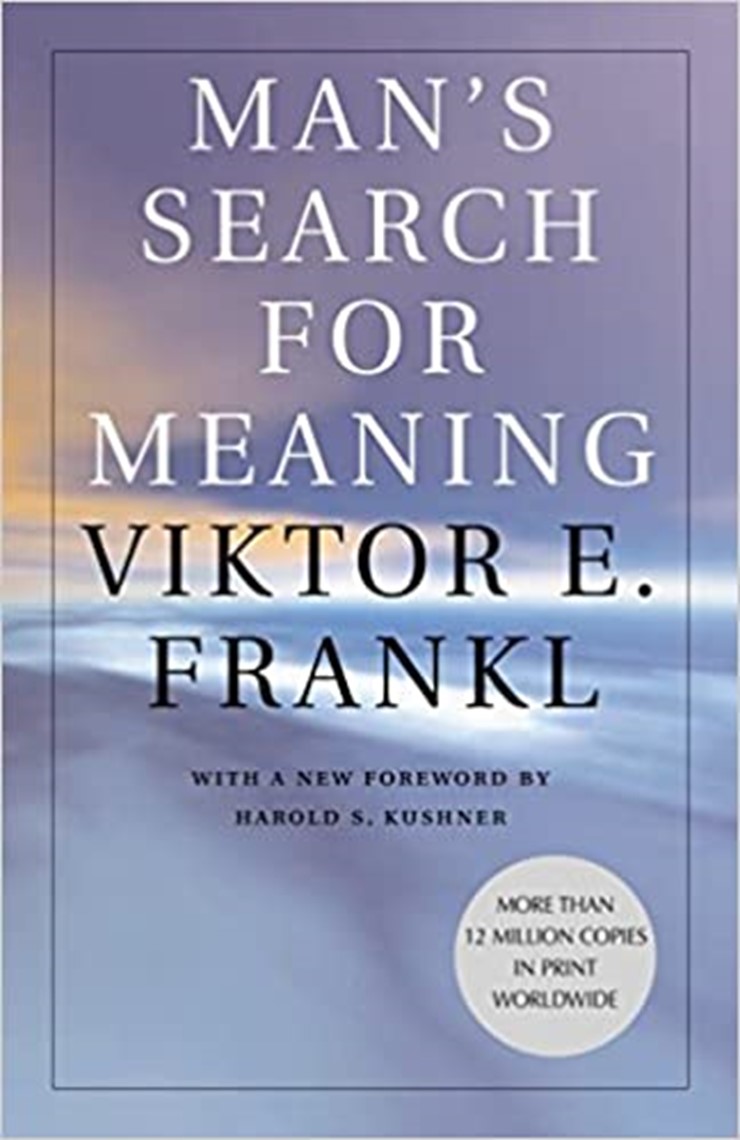
Baxter defines a Christian as someone who “is an esteemer of the unity of the church and is greatly averse to all divisions between believers.” “When he sees anyone making divisions among Christians, he sees them as someone mangling the body of his dearest friend, or as one that is setting fire to his house, and does all that he can to quench the fire.”
Baxter’s definition of a Mere Christian is someone who:
- “Holds beliefs evident from apostolic times.”
- “Adheres to teachings plainly and certainly expressed in Holy Scripture.”
- “Agrees to doctrines held by the universal church throughout the ages.”
- Maintains a “harmony of essential belief amidst a modern community of faith.”
- Experiences a true change of heart, not merely lip service to correct belief, upon his baptism and conversion into the faith.
Walter Hooper, CS Lewis’ last secretary and editor of his posthumous essays, believes that CS Lewis was inspired by Richard Baxter’s appeal to “Meer Christianity.”[2] Timothy Miller, author of the paper we are quoting from, compares and contrasts the views of CS Lewis and Baxter, noting that these differences were due mostly to the very different historical times they lived in. He observes that CS Lewis thought that the denominational differences between Christians were a necessary evil, that we must all choose a church to join. Although we will never be able to bridge these differences, Christians should avoid interdenominational squabbling so they can instead confront the modern world hostile to the universal “Mere Christianity.”[3]
WAS CS LEWIS A CLOSET CATHOLIC?
CS Lewis is the only theologian whose works are enthusiastically accepted by Protestants, Catholics, and Orthodox Christians. This universal acceptance is because CS Lewis wished to encourage all Christians to lead a godly life. Like Baxter, he avoided the debates surrounding which Christian sect possessed the secrets of salvation and rephrases the classical arguments so they don’t sound Catholic.
When reflecting on CS Lewis’ Mere Christianity, we noticed many references and similarities to St Augustine’s Confessions. In one instance, CS Lewis directly quotes St Augustine, but does not dare attribute this famous passage from his Confessions: “A famous Christian long ago told us that when he was a young man he prayed constantly for chastity; but years later he realized that while his lips had been saying, ‘Oh Lord, make me chaste,’ his heart had been secretly adding, ‘But Please don’t do it just yet.’”[4]
Summary of St Augustine’s Confessions of Faith and Repentance
https://seekingvirtueandwisdom.com/summary-of-st-augustines-confessions-of-faith-and-repentance/
https://youtu.be/sIpx5qJMGvw
St Augustine’s Confessions, His Conversion, Baptism, St Monica’s Death, and Philosophy, Books 8 & 9
https://seekingvirtueandwisdom.com/st-augustines-confessions-his-conversion-baptism-st-monicas-death-and-philosophy-books-8-9/
https://youtu.be/Vijtjxm3Ta0
St Augustine’s Confessions are similar to CS Lewis’ reflections in Mere Christianity. Like CS Lewis, the young Augustine initially rejected the Catholic faith of his mother Monica, viewing the Christian religion as primitive and intellectually backward, opting for the dualistic Manichean heresy. CS Lewis’ discussion of dualism echoes the critique of St Augustine.
One difference is CS Lewis was briefly an atheist, but atheism was not an option in the ancient world. Since ancient science did not have explanations for earthquakes, volcanoes, extreme weather, and many celestial events, the debate was whether there were many pagan gods or just one God in the Judeo-Christian tradition. Another alternative was the trendy Gnostic worldview that attracted the young Augustine, the Manichean heresy, which was based on the dualistic Zoroastrian faith, where evil was explained as a struggle between an evil deity and a virtuous deity. Manicheanism was an amalgam of Zoroastrianism and whatever local faith tradition it encountered.
St Augustine’s Confessions: Manichaeism, NeoPlatonic Philosophy, and Monica’s Prayers, Books 3, 4, and 5
https://seekingvirtueandwisdom.com/st-augustines-confessions-manichaeism-neoplatonic-philosophy-and-monicas-prayers/
https://youtu.be/ydskqlgZSrE
Another difference was that St Augustine’s Confessions was a spiritual autobiography narrated as a prayer to God, where St Augustine revealed the spiritual struggles at each stage of his life, up to his conversion. CS Lewis’ spiritual autobiography was his work, Surprised by Joy, where he reflects on his life events through his rededication to Christianity. In the preface, CS Lewis claims that Surprised by Joy is not a general autobiography like St Augustine’s Confessions,[5] though they are both spiritual autobiographies. In his Mere Christianity, CS Lewis refutes his false perceptions of Christianity that deceived him to adopt atheism. CS Lewis also reflected on his faith in his first book published after his conversion, the Pilgrim’s Regress, which was a play on John Bunyan’s classic work, Pilgrim’s Progress.
We saw so many similarities between CS Lewis’ Mere Christianity and St Augustine’s Confessions that we asked this question: Was CS Lewis a Closet Catholic? We concluded that no, CS Lewis returned to the Anglican Church of his youth, convinced that he could stand above the fray and draw from all religious traditions. For his day job, CS Lewis was a professor specializing in Medieval and Renaissance Literature. His writings attest to his immersion in the history and mythology of ancient Norse, Greek and Roman cultures, the early Church Fathers, and both Protestant and Catholic authors after the Reformation, including John Bunyan of Pilgrim’s Progress and John Milton’s Paradise Lost. Of course, the writings before the Reformation are Catholic, and St Augustine’s works were a foundation of Western Tradition, including theology, philosophy, psychology, and scientific inquiry.
Was CS Lewis a Closet Catholic? Reflections on Mere Christianity, Books 2-4
https://seekingvirtueandwisdom.com/was-cs-lewis-a-closet-catholic-reflections-on-his-mere-christianity/
https://youtu.be/ksWomcEg8C0
CS LEWIS AND ST AUGUSTINE ON THE TRINITY
CS Lewis’ explanation of the Trinity is a bit baffling, perhaps he tries too hard to rephrase the traditional formulation so it doesn’t sound Catholic. His explanation would have been clearer if he had started with St Augustine’s classic seven-fold explanation of the Trinity:
- “The Father is not the Son nor the Holy Spirit.
- The Son is not the Father nor the Holy Spirit.
- The Holy Spirit is not the Father nor the Son.
- The Father is only the Father.
- The Son is only the Son.
- The Holy Spirit is only the Holy Spirit.”
- There is only one God, as Deuteronomy exhorts us. As St Augustine teaches us, “To all three belong the same eternity, the same unchangeableness, the same majesty, the same power.”[6]
When discussing the nature of time, CS Lewis repeats St Augustine, saying that “God is not in Time. His life does not consist of moments following one another.” He answers the question that many modern Christians have: “If a million people are praying to Him at ten-thirty tonight, He need not listen to them all in that one little snippet which we call ten-thirty.” “Jesus has infinite attention to spare for each one of us.”
This understanding that God is beyond time can help to explain the puzzle of predestination. CS Lewis, paraphrasing St Augustine’s Confessions, teaches us: “All the days are NOW for God. He does not remember you doing things yesterday; He simply sees you doing them, because, though you have lost yesterday, He has not. He does not foresee you doing things tomorrow; He simply sees you doing them: because, though tomorrow is not yet here for you, it is for Him.”[7]
CS Lewis also explores the meaning of the innocent Christ, who is sinless, and has born the punishment for our sins. His belief in the atonement is expressed allegorically in the Chronicles of Narnia, where the Lion Aslan is executed in the place of the traitor Edmund, cracking the Stone Table when he is resurrected with his mane restored.
CS Lewis also reflects on how God can be three persons, and how the Father begets the Son, but he avoids the controversial Filioque controversy where the Catholics and Orthodox Churches disagree whether the Holy Spirit proceeds from both the Father and the Son or proceeds from just the Father. He also explores what the Trinity means to the ordinary believer.
Good Friday, Easter, and Trinity: CS Lewis’ Mere Christianity, Narnia, & St Augustine’s Confessions, Books 1-4
https://seekingvirtueandwisdom.com/good-friday-easter-and-trinity-cs-lewis-mere-christianity-narnia-st-augustines-confessions/
https://youtu.be/c71ygBqvPoY
CS LEWIS’ WARTIME BROADCASTS
Mere Christianity was compiled from a series of radio addresses by CS Lewis explaining the tenets of Christianity which were broadcast during the dark days of World War II, when Londoners fled to the safety of the underground subway tunnels while Nazi bombers destroyed their homes above. Thus, Mere Christianity frequently refers to the current conflict with Nazi Germany, pointing out how totalitarian regimes endanger Christianity.
How can anyone forgive the evil Nazis? CS Lewis responds: “Everyone says forgiveness is a lovely idea, until they have something to forgive, as we had during the war. And then, to mention the subject at all is to be greeted with howls of anger.” “Half of you,” his radio audience, “want to ask me, ‘I wonder how you’d feel about forgiving the Gestapo if you were a Pole or a Jew?”[8]
This question of how you can forgive the Nazis is discussed by Viktor Frankl in his Man’s Search For Meaning, where Frankl shares how some Jews survived the work camps of Auschwitz during World War II.
Facing the Nazi Menace: CS Lewis’ Mere Christianity and Viktor Frankl’s Memoirs on Auschwitz, Books 1-4
https://seekingvirtueandwisdom.com/facing-the-nazi-menace-cs-lewis-mere-christianity-and-viktor-frankls-mans-search-for-meaning/
https://youtu.be/x-9FeH9Gyng
For Viktor Frankl, the Jewish psychologist who survived these concentration camps, this question of forgiveness was personal. Dr Winslade, who wrote a forward for his book Man’s Search for Meaning, observes that “Frankl was deeply committed to the idea that even a vile Nazi criminal or a seemingly hopeless madman has the potential to transcend evil or insanity by making responsible choices.”[9]
Viktor Frankl’s Logo-therapy, Man’s Search For Meaning in Life, Love, and Suffering
https://seekingvirtueandwisdom.com/viktor-frankls-logo-therapy-mans-search-for-meaning/
https://youtu.be/1nTYlhDUJh8
Viktor Frankl, Man’s Search For Meaning, His Life in a Nazi Concentration Camp in WWII
http://www.seekingvirtueandwisdom.com/viktor-frankl-mans-search-for-meaning-his-life-in-a-nazi-concentration-camp-in-wwii/
https://youtu.be/O-YtC9qGWPI
DID MERE CHRISTIANITY PREPARE THE WAY FOR VATICAN II?
Did CS Lewis’ Mere Christianity prepare the way for the ecumenicism of Vatican II? CS Lewis did not wave the flag of ecumenicism, attending this conference or that on interfaith dialogues, which were more frequent in the post-war era, but instead stated that what denominational creed you profess is less important than whether you truly believe the core Christian teaching of the two-fold Love of God and neighbor. This was the key change wrought by Vatican II: No longer did the Catholic Church believe that you needed to be Catholic to be saved. Likewise, CS Lewis is against the Protestant notion that Catholics cannot be saved.
Preparing the Way for Vatican II: CS Lewis’ Mere Christianity, Books 1-4
https://seekingvirtueandwisdom.com/preparing-the-way-for-vatican-ii-cs-lewis-mere-christianity/
https://youtu.be/udJQzmqst34
The decrees of Vatican II agree, declaring that although the Catholic Church possesses the seeds of faith through the Apostolic Succession, through the bishops throughout history beginning with Peter, the first bishop of Rome, that Catholics have much to learn from their Protestant brothers. Furthermore, Catholics should respect the religious traditions of both Protestants and non-Christians.
What Happened at Vatican II, Embracing Democracy and Modernity
http://www.seekingvirtueandwisdom.com/what-happened-at-vatican-ii-embracing-democracy-and-modernity/
https://youtu.be/vHtYu6UtiuE
CS Lewis agrees: “If you are a Christian, you do not have to believe that all the other religions are simply wrong all through.” “If you are a Christian, you are free to think that all those religions, even the queerest ones, contain at least some hint of the truth.”
“But of course, being a Christian does mean thinking that where Christianity differs from other religions: Christianity is right, and they are wrong.” Pope Benedict and the decrees of Vatican II also affirm this, adding that, nevertheless, we should treat all major religious traditions with dignity and respect, seeking dialogue rather than acrimony.[10] In other words, CS Lewis wants Jesus to be the one who judges.
These reflections by CS Lewis echo those by St Augustine, who in On Christian Teaching, or On Christian Doctrine, observes that though it would be preferable for a Christian to reach salvation by taking the narrow road, sometimes he can find the faith through a longer route through the fields.
St Augustine teaches us: “Whoever takes another meaning out of Scripture than the writer intended goes astray, but not through any falsehood in Scripture.” But “if his mistaken interpretation tends to build up love, which is the end of the commandments, he goes astray in much the same way as a man who, by mistake, quits the high road, but yet reaches through the fields the same place to which the road leads.” But he reminds us that the high road is preferable.[11]
St Augustine: On Christian Teaching, aka On Christian Doctrine, How To Read Scripture
http://www.seekingvirtueandwisdom.com/st-augustine-on-christian-teaching-how-to-read-scripture/
https://youtu.be/uQCnAJMPoos
How did the experiences of World War II change the views of leading Catholics? In Italy, although the fascist Mussolini was initially a friend of the Catholic Church, he fell fully under the spell of Hitler shortly before he invaded Poland, passing laws persecuting the Jews. Pope Pius XI, who had signed the 1927 Concordat with Mussolini creating Vatican City, fearing for his salvation as he knew his health was failing, became the bitter enemy of Mussolini, Hitler, and Nazism. The lesson was clear: totalitarian regimes could never be trusted, even if they initially supported the church, as they could turn against the church on a dime.
We also reflected on how Christians suffered and survived under the Nazi and fascist regimes of Nazi Germany and Vichy France, and how Spanish Catholics were forced to choose between supporting the communists, who massacred monks, nuns, and priests, and the pro-Catholic fascist forces of General Franco, who instead massacred public school teachers.
Mussolini’s Fascist Regime and the Catholic Church
http://www.seekingvirtueandwisdom.com/mussolinis-fascist-regime-and-the-catholic-church/
https://youtu.be/LvNynEdZFuM
How the Catholic Church and the Confessing Church Survived Under Hitler’s Pagan Nazi Regime
http://www.seekingvirtueandwisdom.com/christians-under-hitlers-german-nazi-regime/
https://youtu.be/QP9UR8fqfvs
Spanish Civil War and the Catholic Church
http://www.seekingvirtueandwisdom.com/spanish-civil-war-and-the-catholic-church/
https://youtu.be/ozEioe6yyY8
Vichy France Regime, Blog 1, Pro-Life, Pro-Catholic, and Fascist
http://www.seekingvirtueandwisdom.com/vichy-france-regime-blog-1-pro-life-pro-catholic-and-fascist/
Vichy France, Blog 2, Collaborating with the Germans in the Early Years, 1940-1942
http://www.seekingvirtueandwisdom.com/vichy-france-blog-2-collaborating-with-the-germans-in-the-early-years-1940-1942/
Vichy France, Blog 3, The Tide Turns, Resistance and Collaboration
http://www.seekingvirtueandwisdom.com/vichy-france-blog-3-the-tide-turns-resistance-and-collaboration/
Vichy France, Blog 4, Christianity in Vichy France
http://www.seekingvirtueandwisdom.com/vichy-france-blog-4-christianity-in-vichy-france/
Vichy France in WWII: Pro-Fascist, Pro-Catholic, Pro-Life, Anti-Semitic
https://youtu.be/yYpNrhpmsYw
These experiences and memories of living under the Nazi and fascist regimes before and during World War II made the European bishops distrustful of totalitarian regimes. This is why the Vatican II decrees embraced democracy, distrusting totalitarianism, and also autocracy.
Vatican II Decree on Freedom of Religion, Embracing Democracy, Rejecting Fascism
http://www.seekingvirtueandwisdom.com/vatican-ii-decree-on-freedom-of-religion-embracing-democracy-rejecting-fascism/
https://youtu.be/i_zGeTW9QMI
CS LEWIS ON CARDINAL VIRTUES
CS Lewis frames his discussions on Catholic rather than Protestant themes, explicitly discussing the four Cardinal Virtues: Prudence, Temperance, Justice, and Fortitude. These are not controversial since they are first discussed in Plato’s Republic, Aristotle’s Nicomachean Ethics, and in Stoic philosophy, as well as St Thomas Aquinas’ commentaries on Aristotle.
What does the Greek word commonly translated as “justice” in English really mean? In his translation of Plato’s Republic, Robin Waterfield shares that the Greek word customarily translated as “justice” in English he prefers to translate as “morality.” The English word “justice” implies that it is something done in the courthouse, whereas the original meaning was more synonymous with loving your neighbor, particularly with those neighbors who are acquaintances or strangers. So, justice here is the same as loving your neighbors, seen and unseen, including those you have never met.
CS Lewis agrees, reminding us: “Justice means much more than the sort of thing that goes on in law courts. It is the old name for everything we now call fairness; it includes honesty, give and take, truthfulness, keeping promises, and all that side of life.”
Morality and the Cardinal Virtues in CS Lewis’ Mere Christianity: Prudence, Temperance, Justice, and Fortitude, Books 1-3
https://seekingvirtueandwisdom.com/mere-morality-and-the-cardinal-virtues-in-cs-lewis-mere-christianity-prudence-temperance-and-justice/
https://youtu.be/Djbzmeb2nc0
CS Lewis teaches us that fortitude includes two kinds of courage, “the kind that faces danger as well as the kind that ‘sticks it’ under pain. ‘Guts’ is perhaps the nearest modern English word.”[12]
Fortitude is replaced by courage in the ancient Greek lists. Courage was a primary virtue by Plato and Aristotle because the ancient Greek culture, like most ancient cultures, was a warrior culture. Every male citizen was expected to serve in the army because in the ancient world when the enemy defeated your city, often your property was seized, your military-age men were slaughtered, and your women and children were enslaved.
Ancient Warrior Societies, Blog 1, The Warrior Ethos of Ancient Greece, Rome, and Israel
https://seekingvirtueandwisdom.com/ancient-warrior-societies-blog-1-the-warrior-ethos-of-ancient-greece/
https://youtu.be/7QAZ_s6zw4E
Ancient Warrior Societies, Blog 2, Greek and Roman Armies and Navies
https://seekingvirtueandwisdom.com/ancient-warrior-societies-blog-2-greek-and-roman-armies-and-navies/
Ancient Warrior Societies, Blog 3, World of the Old Testament
https://seekingvirtueandwisdom.com/ancient-warrior-societies-blog-3-world-of-the-old-testament/
Ancient Warfare in Ancient Greece, Rome, and Israel. Did Joshua Massacre Pagans in Promised Land?
https://youtu.be/9xKxqAbJ2qY
CS LEWIS ON THE THEOLOGICAL VIRTUES OF FAITH, HOPE, AND LOVE
St Augustine is my favorite Catholic saint because, in every major work, he explicitly repeats this core belief. Our saint teaches us that all Scripture must be interpreted in light of this two-fold love of God and neighbor. When the literal reading of the Scriptures appears to violate this two-fold love, then it should be interpreted allegorically. This principle can be extended to our relations with our neighbors, that we should think well of our neighbor, so we can bring out the best in our neighbor, and so everything we think, say, or do can be beneficial to all concerned.
Faith, Hope, Charity, and Love in CS Lewis’ Mere Christianity: The Theological Virtues, Book 3
https://seekingvirtueandwisdom.com/faith-hope-charity-and-love-in-cs-lewis-mere-christianity-the-theological-virtues/
https://youtu.be/avesW8whRSQ
Hillel and Jesus, Reflections on Rabbi Telushkin’s Observations
http://www.seekingvirtueandwisdom.com/hillel-and-jesus-reflections/
Comparing Hillel and Shammai to Jesus
http://www.seekingvirtueandwisdom.com/comparing-hillel-and-shammai-to-jesus/
More Stories and Sayings of Hillel and Shammai
http://www.seekingvirtueandwisdom.com/more-stories-and-sayings-of-hillel-and-shammai/
Jesus, Hillel, and Shammai, Loving God and Neighbor
https://youtu.be/ygxn2qqGnOI
St Augustine: On Christian Teaching, aka On Christian Doctrine, How To Read Scripture
http://www.seekingvirtueandwisdom.com/st-augustine-on-christian-teaching-how-to-read-scripture/
https://youtu.be/uQCnAJMPoos
CS Lewis teaches us: “Christian Love, either towards God or towards man, is an affair of the will. If we are trying to do His will, we are obeying the Commandments, ‘Thou shalt Love the Lord thy God.’ He will give us feelings of love if He pleases.”[13]
What did many people hope for during the war? CS Lewis, in his London broadcasts on Christianity during World War II, gave the besieged British hope that the forces of good would prevail, that Britain would defeat the evil Nazi regime.
In the same way, the psychologist Viktor Frankl encouraged his fellow prisoners in Auschwitz not to lose their soul, and to keep their hope alive that they would see their loved ones once the war ended. Is the yearning we feel for a loved one whom we miss like the ardent hope we experience for the kingdom of God? Indeed, hope thrives with love.
The concentration camp prisoners with a rich inner spiritual life possessed hope, they were more likely to survive. Viktor Frankl remembers, “In spite of all the enforced physical and mental primitiveness of life in a concentration camp, it was possible for spiritual life to deepen. Sensitive people who were used to a rich intellectual life may suffer more pain, but the damage to their inner selves was less. They were able to retreat from their terrible surroundings to a life of inner riches and spiritual freedom.”[14]
Viktor Frankl’s Logo-therapy, Man’s Search For Meaning in Life, Love, and Suffering
https://seekingvirtueandwisdom.com/viktor-frankls-logo-therapy-mans-search-for-meaning/
https://youtu.be/1nTYlhDUJh8
How can you keep your faith, how can your faith not dim like a candle starved for oxygen? CS Lewis advises us: “Deliberately hold your faith daily before your mind and for some time every day,” “by daily prayers, religious readings, and church-going.” “We have to be continually reminded of what we believe.”[15]
In his Confessions, St Augustine tells the story of the pagan philosopher Victorinus, who decided that he was a Christian after being convinced of the truth after studying many Christian writings, but he saw no need to join the church and attend the services. Laughing, he asked a Christian friend: “Do the walls of the church make you a Christian?” But with further study, he was seized with fear that Christ would deny him on Judgement Day as he was too faint-hearted to acknowledge Christ before men and partake of His Holy Sacraments.
His studies answering his question, Victorinus came to realize that YES, indeed, the walls of the church do make the Christian! He submitted his name to the bishop to be baptized the next Easter publicly in the church, [16] meeting with his fellow Christians in public worship of Christ, encouraging one another, as Hebrews states.[17]
St Augustine’s Confessions, His Conversion, Baptism, St Monica’s Death, and Philosophy, Books 8 & 9
https://seekingvirtueandwisdom.com/st-augustines-confessions-his-conversion-baptism-st-monicas-death-and-philosophy-books-8-9/
https://youtu.be/Vijtjxm3Ta0
What is it like when we do something to please God? “It is like a small child going to its father and saying, ‘Daddy, give me sixpence to buy you a birthday present.’ Of course, the father does, and he is pleased with the child’s present. It is all very nice and proper, but only an idiot would think that the father is sixpence to the good on the transaction.”[18] If we could succeed in living the Christian virtues, we “would only be giving back to God what was already God’s own.”
CS Lewis does wade into the debate of Faith versus Works, although he calls works actions. CS Lewis begins: “Christians have often disputed as to whether what leads the Christian home is good actions, or faith in Christ.” “But you will find that even those who insist most strongly on the importance of good actions tell you that you need Faith; and even those who insist most strongly on Faith tell you to do good actions.”[19]
CS Lewis continues: “The New Testament tells us that” in a Christian society “there would be no passengers or parasites: if a man does not work, he ought not to eat.” But CS Lewis also notes that “in the passage where the New Testament says that everyone must work, it gives as a reason ‘in order that the Christian may have something to give to those in need.’ Charity, giving to the poor, is an essential part of Christian morality.”[20]
The context of this verse is that in the first Book of Thessalonians, St Paul discussed the imminent coming of the Lord, but some in the community were counting on this coming a bit too much, quitting their jobs and causing problems in the community. In the second Book of Thessalonians, St Paul is urging those who quit their jobs to wait on the Lord’s coming to find another job.[21] In the New Testament, there is only one verse that warns that if you do not work, you do not eat, but there are over a dozen verses that exhort you to give alms to the poor, plus most of the Old Testament prophets exhort you to take care of the widows and orphans, and other poor people.
CS LEWIS ON FORGIVENESS, PRIDE, AND ENVY
CS Lewis reflects on repentance and forgiveness, how we should forgive if we are to be forgiven, and on the link between pride and envy. CS Lewis notes that in the middle of the Lord’s Prayer we pray: “Forgive us our sins as we forgive those who sin against us.” He observes: “There is no slightest suggestion that we are offered forgiveness on any other terms. It is made perfectly clear that if we do not forgive, we shall not be forgiven.”
Indeed, immediately after the Lord’s Prayer in Matthew, Jesus exhorts us: “For if you forgive men their trespasses, your heavenly Father also will forgive you; but if you do not forgive men their trespasses, neither will your Father forgive your trespasses.”[22]
Pride is the original sin, pride is why the serpent tempts Eve in the Garden of Eden when he says to her: “You will not die. For God knows that when you eat of it,” the forbidden fruit, “your eyes will be opened, and you will be like God, knowing good and evil.”[23] CS Lewis teaches us that Pride is also called Self-Conceit, and its opposite virtue is Humility. CS Lewis teaches us: “Pride leads to every other vice: it is the complete anti-God state of mind.”
CS Lewis continues: “Pride is essentially competitive, while the other vices are competitive only by accident. Pride gets no pleasure out of having something, only out of having more of it than the next man. We say that people are proud of being rich, or clever, or good-looking, but they are not. They are proud of being richer, or cleverer, or better-looking than others.” “If I am a proud man, then, as long as there is one man in the whole world more powerful, or richer, or cleverer than I, then he is my rival and my enemy.”
By this definition, pride is supercharged envy. Envy is the commandment that often precedes the breaking of any other commandment in the Decalogue that bids you to love your neighbor. CS Lewis teaches us: “Pride is spiritual cancer: it eats up the very possibility of love, or contentment, or even common sense.”
There are several behaviors that we label as pride that are beneficial. Praising your children’s accomplishments to encourage them is admirable. CS Lewis says: “Pleasure in being praised is not Pride,” we should appreciate others when they sincerely praise us.
CS Lewis’ Mere Christianity: Forgiveness, Pride, and Envy. Can Pride Ever Be Good?, Book 3
https://seekingvirtueandwisdom.com/cs-lewis-mere-christianity-forgiveness-pride-and-envy-can-pride-ever-be-good/
https://youtu.be/Pmu6hzU5RaQ
MERE CHRISTIANITY ON INTIMACY, ROMANCE, MARRIAGE AND DIVORCE
CS Lewis writes: “Some people think that the fall of man had something to do with sex, but that is a mistake. The story in the Book of Genesis rather suggests that some corruption in our sexual nature followed the fall and was its result, not its cause.”[24]
CS Lewis observed that “Christianity teaches that marriage is for life. There is, of course, a difference between different Churches: some do not admit divorce at all; some allow it reluctantly in very special cases.” All Churches view divorce as a desperate remedy, “it is more like having both your legs cut off than it is like dissolving a business partnership.” But all Churches “disagree with the modern view that it is a simple readjustment of partners, to be made whenever people feel they are no longer in love with one another, or when either of them falls in love with someone else.”
What divorce support ministries are available? One ministry is Divorce Care, which is a non-denominational divorce support group ministry that distributes a thirteen-session set of DVDs with Christian counselors. After the DVD is played, those in the support group are asked to share. Both Protestant and Catholic Churches run these support groups.
Catholics Surviving Divorce is a similar support group for Catholics that also provides information on the Catholic annulment process.
https://www.catholicsdivorce.com/
CS Lewis observes: “Chastity is the most unpopular of the Christian virtues. There is no getting away from it; the Christian rule is, ‘Either marriage, with complete faithfulness to your partner, or else total abstinence.’”
CS Lewis warns us: “The monstrosity of sexual intercourse outside marriage is that those who indulge in it are trying to isolate the sexual union from” “the total union” of the marriage.[25]
CS Lewis continues: “Being in love is a good thing, but it is not the best thing.” “You cannot make it the basis of a whole life. It is a noble feeling, but it is still a feeling.” But CS Lewis warns us that the initial excitement will not last, that “love in the second sense is not merely a feeling, but is a deep unity, maintained by the will and deliberately strengthened by habit, reinforced in Christian marriages by the grace which both partners ask, and receive, from God.”
CS Lewis observes: “People get from books the idea that if you have married the right person, you may expect to go on ‘being in love’ forever. As a result, when they find they are not, they think this proves they have made a mistake and are entitled to a change.[26]
CS Lewis’ Mere Christianity: Intimacy, Romance, Marriage, and Divorce, Books 2-3
https://seekingvirtueandwisdom.com/cs-lewis-mere-christianity-reflections-on-intimacy-romance-marriage-and-divorce/
https://youtu.be/fZcOip3WGe8
IS CHRISTIANITY HARD OR EASY?
In the closing chapters of his Mere Christianity, CS Lewis asks this question: Is Christianity Hard or Easy? The answer is YES, because Christianity is both Hard, and it is easy.
CS Lewis teaches us: “Christ Himself sometimes describes the Christian way as very hard, sometimes as very easy. He exhorts us to ‘take up your Cross.’ In other words, it is like going to be beaten to death in a concentration camp. Next minute Jesus says, ‘My yoke is easy and my burden light.’ He means both,” “and both are true.”[27]
The Christian way is both harder and easier. CS Lewis teaches us: “Christ says, ‘Give me All. I don’t want so much of your time and so much of your money and so much of your work: I want you. I have not come to torment your natural self, but to kill it.”
“When Christ said, ‘Be perfect,’ He meant it. Christ meant that we must go in for the full treatment. It is hard; but the sort of compromise we are all hankering after is harder. In fact, it is impossible.”[28]
CS Lewis’ Mere Christianity: Is Living the Christian Life Hard or Easy?, Book 4
https://seekingvirtueandwisdom.com/cs-lewis-mere-christianity-is-christianity-easy-or-hard/
https://youtu.be/jZuWmInLh7s
DISCUSSING THE SOURCES
CS Lewis sought to make the core theological Christian doctrines and teachings comprehensible for ordinary Christians, and he succeeded. Viktor Frankl, who survived the Nazi Auschwitz work camps and is the author of Man’s Search for Meaning, has inspiring passages on hope. Please review our detailed review and discussion of Mere Christianity in our initial video of Mere Christianity and the Nazi Menace.
Facing the Nazi Menace: CS Lewis’ Mere Christianity and Viktor Frankl’s Memoirs on Auschwitz, Books 1-4
https://seekingvirtueandwisdom.com/facing-the-nazi-menace-cs-lewis-mere-christianity-and-viktor-frankls-mans-search-for-meaning/
https://youtu.be/x-9FeH9Gyng
[1] https://en.wikipedia.org/wiki/C._S._Lewis
[2] Walter Hooper, The Source of CS Lewis’ Use of the Phrase, “Mere Christianity,” included in The Pilgrim’s Pride, CS Lewis and the Art of Witness, edited by David Mills (Cambridge, UK: William B Eerdmans Publishing Company, 1998), pp. xvi and 294.
[3] Timothy Miller, Detroit Baptist Seminar Journal, DBSJ 20, 2015, pp. 65-88.
[4] CS Lewis, Mere Christianity, included in volume containing Mere Christianity and the Screwtape Letters (HarperSanFrancisco, 2003, 1944),Book 3, Chapter 5, Sexual Morality, p. 99 and St Augustine, Confessions, translated by RS Pine-Coffin (New York: Dorset Press, 1986, 1961, originally 400 AD), Book 8, Chapter 7, p. 169.
[5] CS Lewis, Surprised By Joy, included in The Beloved Works of CS Lewis (Edison, NJ, Inspirational Press, 1984), Preface, p. 3,
[6] St Augustine, “On Christian Doctrine,” In the Nicene and Post-Nicene Fathers, First Series, Volume 2, translated by Rev JF Shaw (Boston: Hendrickson Publishers, 1994, first published 1887), Book 1, Chapter 5, p. 524.
[7] CS Lewis, Mere Christianity, Book 4, Chapter 3, Time and Beyond Time, pp. 167-170.
[8] CS Lewis, Mere Christianity, Book 3, Chapter 7, Forgiveness, p. 115.
[9] Viktor Frankl, Man’s Search for Meaning (Boston: Beacon Press, 2006, 1959), p. 163 and https://en.wikipedia.org/wiki/Viktor_Frankl
[10] CS Lewis, Mere Christianity, Book 2, Chapter 5, The Practical Conclusion, p. 64.
[11] St Augustine, “On Christian Doctrine,” Book 1, Chapter 36, Passage 41, p. 533.
[12] CS Lewis, Mere Christianity, Book 3, Chapter 2, The Cardinal Virtues, p. 79.
[13] CS Lewis, Mere Christianity, Book 3, Chapter 9, Charity, pp. 129-133.
[14] Viktor Frankl, Man’s Search for Meaning, p. 36.
[15] CS Lewis, Mere Christianity, Book 3, Chapter 11, Faith (in the first sense), p. 141.
[16] St Augustine, Confessions, Book 7, Chapter 2, pp. 159-161.
[17] https://www.biblegateway.com/passage/?search=hebrews+10%3A23-25&version=RSVCE
[18] CS Lewis, Mere Christianity, Book 3, Chapter 11, Faith (in the first sense), pp. 142-143.
[19] CS Lewis, Mere Christianity, Book 3, Chapter 12, Faith (in the second sense), p. 148.
[20] CS Lewis, Mere Christianity, Book 3, Chapter 3, Social Morality, pp. 84-87.
[21] The Broadman Bible Commentary, Volume 11, 2 Corinthians – Philemon (Nashville: Broadman Press, 1971), p. 296.
[22] https://www.biblegateway.com/passage/?search=matthew+6%3A14-15&version=RSVCE
[23] https://www.biblegateway.com/passage/?search=Genesis+3%3A4-5&version=RSVCE
[24] CS Lewis, Mere Christianity, Book 2, Chapter 3, The Shocking Alternative, p. 49.
[25] CS Lewis, Mere Christianity, Book 3, Chapter 6, Christian Marriage, pp. 104-105.
[26] CS Lewis, Mere Christianity, Book 3, Chapter 6, Christian Marriage, pp. 106-114.
[27] CS Lewis, Mere Christianity, Book 4, Chapter 8, Is Christianity Hard or Easy?, p. 197, quoting https://www.biblegateway.com/passage/?search=matthew+16%3A24&version=RSVCE and https://www.biblegateway.com/passage/?search=matthew+11%3A30&version=RSVCE
[28] CS Lewis, Mere Christianity, Book 4, Chapter 8, Is Christianity Hard or Easy? pp. 196-198.

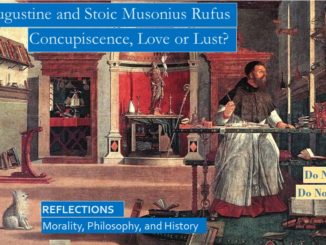
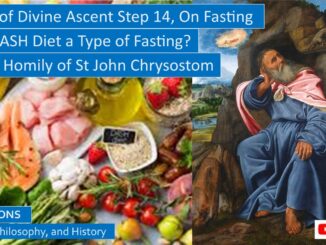
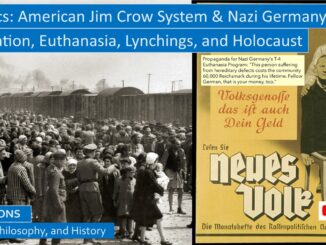
2 Trackbacks / Pingbacks